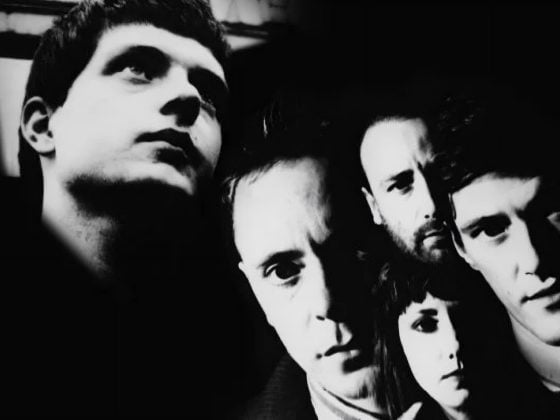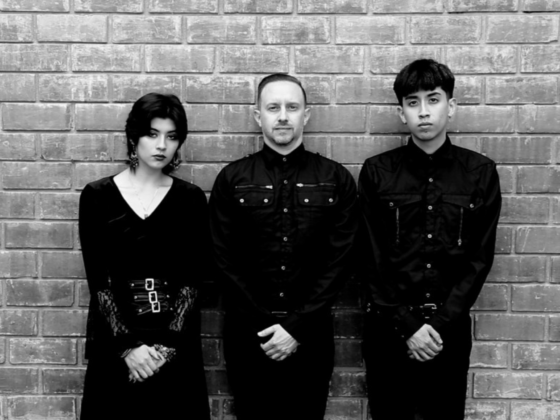In the cold winter nights the old town it was chillBut there were boys in the cafes who’d give you cheap pillsIf you didn’t have the money you’d cajole or you’d begThere was always lots of tuinol on the old main drag
Shane MacGowan, lead vocalist and songwriter of The Pogues, arrived on earth on Christmas Day in 1957 in Pembury, Kent. His upbringing, heavily influenced by the Irish immigrant experience coupled with a musical family background, significantly shaped his worldview and artistic expression.
As a youth, MacGowan’s early literary gifts earned him a prestigious scholarship, but by his second year he was expelled for possessing drugs in his second year. After briefly considering joining the priesthood, punk found him. “I was happy during punk. Incredibly happy,” MacGowan said. “You call it chaos. I don’t regard it as chaos. I regard it as natural living.”
In the year 1977, Shane MacGowan stepped into the limelight as “Shane O’Hooligan,” the lead vocalist and principal songwriter for The Nipple Erectors, an ensemble later rechristened as The Nips. This venture, formed in tandem with his then-companion, Shanne Bradley, marked MacGowan’s initial foray into the musical arena. The Nips disbanded three years later, and MacGowan soon embarked on an endeavor that would cement his status in the punk pantheon of music, The Pogues.
Initially bearing the moniker Pogue Mahone—a whimsical nod to the Irish expression “póg mo thóin” (kiss my arse) —the band was a collective of diverse talents, comprising MacGowan himself on vocals, Spider Stacy adding his vocals and tin whistle, Jem Finer on the banjo, James Fearnley masterfully handling the accordion, Andrew Ranken on drums, and Cait O’Riordan commanding the bass.
While MacGowan’s punk contemporaries were stripping their music to the roots of 1950s rhythm and blues, MacGowan’s sights were set a hundred years prior, blending Irish folk with explosive punk ethos, redefining the boundaries of genre entirely. The Pogues’ songs, many of which were written by MacGowan, are celebrated for their lyrical depth, storytelling, and ability to capture the spirit of the Irish diaspora. His lyrics often draw from personal experiences and observations, painting vivid pictures of life, love, and hardship.
MacGowan’s formidable talent, however, suffered greatly: his turbulent lifestyle and battles with substance abuse evolved into both a part of his public persona and a source of concern for his fans and loved ones. Despite these struggles, Shane MacGowan offered us a window into a unique cultural perspective and the complexities of the human experience through themes of struggle, identity, and resilience.
Shane MacGowan, like the great Dylan Thomas before him, garnered two distinct, paradoxical reputations: on one hand, he was tragically afflicted with a sense of mammoth self-destruction, whose personal demons often overshadowed his public persona. On the other, he was revered as a masterful poet, who deftly painted the stark realities of the Irish diaspora. The message was universal, be they Irish-Americans guzzling Guinness in Scranton tap rooms, or the “London Irish” sleeping rough across the pond. MacGowan had the ability to vividly capture the nuances of generational trauma, substance abuse, and displacement.
MacGowan’s ambition was to disrupt the status quo of the music scene with a sound that was deeply rooted, imbued with genuine strength, emotion, and a raw, unfiltered sense of anger. His lyrical craft, deeply influenced by the realms of literature, mythology, and biblical narratives, aimed to bring a profound depth and authenticity to the genre. MacGowan often articulated his discontent with the conventional rock format, which he believed had reached its creative zenith, often with lackluster results.
“We just wanted to shove music that had roots, and is just generally stronger and has more real anger and emotion, down the throats of a completely pap-orientated pop audience,” he said.
Among his most illustrious contributions to music is the startling opening lines of Fairytale of New York. This song, an elegy to the dreams and despairs of alcoholics, transcended its seemingly bleak origins to become an unlikely Yuletide anthem.
As the late 1980s unfolded, the trajectory of Shane MacGowan’s career took a tumultuous turn. His struggles with addiction, coupled with a concerning decline in both mental and physical health, reached a critical point. This unfortunate confluence of personal challenges compelled the members of The Pogues to make a difficult decision: they were forced to part ways with Mr. MacGowan, their frontman and a pivotal figure in the band’s success.
However, this setback did not mark the end of MacGowan’s output. In the aftermath of his departure from The Pogues, he embarked on a new venture, founding Shane MacGowan & the Popes. Throughout the 1990s he carved out a new niche, recording and touring.
Shane MacGowan’s musical journey culminated with the 1997 album “The Crock of Gold” by Shane MacGowan & the Popes. However, his creative spirit continued to flourish. Since 2015, he had been collaborating with the Irish band Cronin on a project that remained unreleased, a blend of cover songs and original compositions.
One of his final works was the creation of The Eternal Buzz and the Crock of Gold, a lavish art book. This publication was celebrated by critic Waldemar Januszczak for its embodiment of MacGowan’s unique artistic energy, described as “demented, wild, fascinating, scabrous.”
After a series of serious health battles, broken bones, and confinement to a wheelchair, MacGowan passed this morning from lingering effects from the encephalitis he had suffered from the past year. Just last week he had been released from hospital.
Shane MacGowan’s personal life was as textured as his professional one. He married his devoted longtime partner Victoria Clarke in 2018. He is survived by his wife, sister Siobhan, and father Maurice.
MacGowan’s death was announced by Clarke this morning.
View this post on Instagram















 Or via:
Or via: